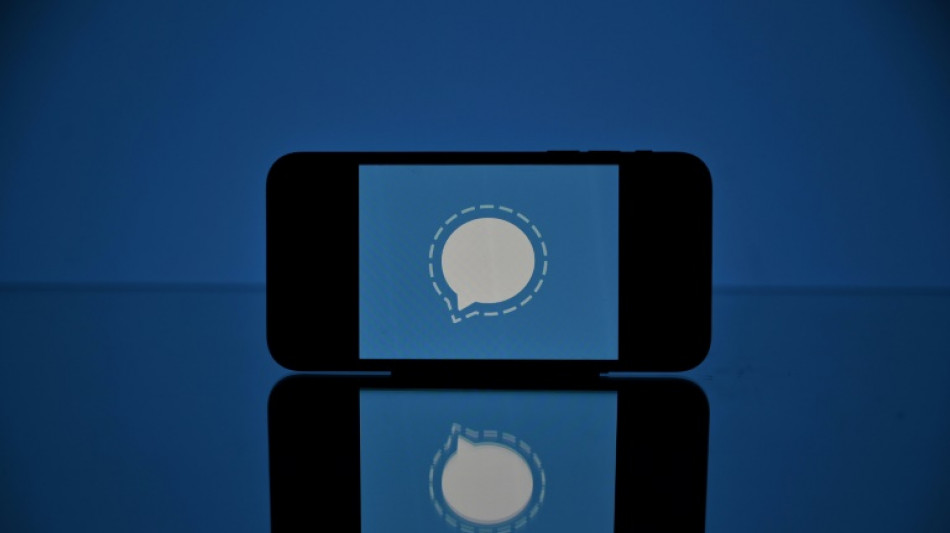
-
 Latin America fondly farewells its first pontiff
Latin America fondly farewells its first pontiff
-
'I wanted it to work': Ukrainians disappointed by Easter truce

-
 Harvard sues Trump over US federal funding cuts
Harvard sues Trump over US federal funding cuts
-
'One isn't born a saint': School nuns remember Pope Francis as a boy

-
 Battling Forest see off Spurs to boost Champions League hopes
Battling Forest see off Spurs to boost Champions League hopes
-
'I don't miss tennis' says Nadal

-
 Biles 'not so sure' about competing at Los Angeles Olympics
Biles 'not so sure' about competing at Los Angeles Olympics
-
Gang-ravaged Haiti nearing 'point of no return', UN warns

-
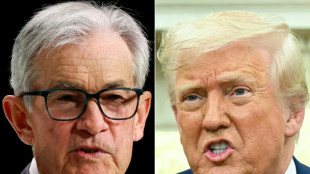 US assets slump again as Trump sharpens attack on Fed chief
US assets slump again as Trump sharpens attack on Fed chief
-
Forest see off Spurs to boost Champions League hopes

-
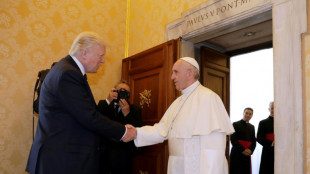 Trump says Pope Francis 'loved the world,' will attend funeral
Trump says Pope Francis 'loved the world,' will attend funeral
-
Oscar voters required to view all films before casting ballots

-
 Bucks' Lillard upgraded to 'questionable' for game 2 v Pacers
Bucks' Lillard upgraded to 'questionable' for game 2 v Pacers
-
Duplantis and Biles win Laureus World Sports Awards

-
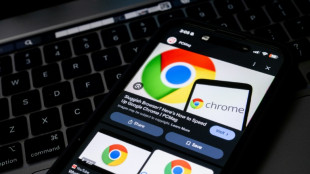 US urges curb of Google's search dominance as AI looms
US urges curb of Google's search dominance as AI looms
-
The Pope with 'two left feet' who loved the 'beautiful game'

-
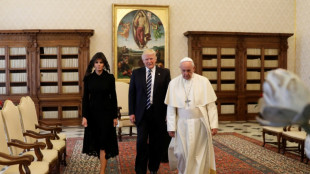 With Pope Francis death, Trump loses top moral critic
With Pope Francis death, Trump loses top moral critic
-
Mourning Americans contrast Trump approach to late Pope Francis
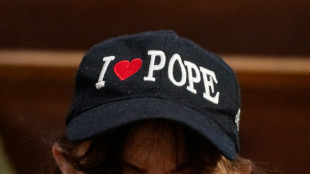
-
 Leeds and Burnley promoted to Premier League
Leeds and Burnley promoted to Premier League
-
Racist gunman jailed for life over US supermarket massacre

-
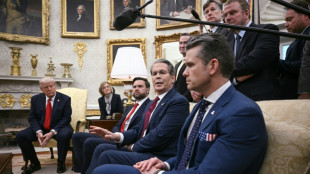 Trump backs Pentagon chief despite new Signal chat scandal
Trump backs Pentagon chief despite new Signal chat scandal
-
Macron vows to step up reconstruction in cyclone-hit Mayotte
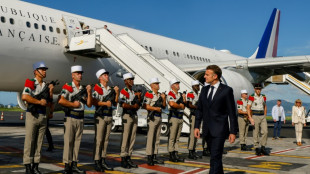
-
 Gill, Sudharsan help toppers Gujarat boss Kolkata in IPL
Gill, Sudharsan help toppers Gujarat boss Kolkata in IPL
-
Messi, San Lorenzo bid farewell to football fan Pope Francis

-
 Leeds on brink of Premier League promotion after smashing Stoke
Leeds on brink of Premier League promotion after smashing Stoke
-
In Lourdes, Catholic pilgrims mourn the 'pope of the poor'

-
 Korir wins men's Boston Marathon, Lokedi upstages Obiri
Korir wins men's Boston Marathon, Lokedi upstages Obiri
-
China's CATL launches new EV sodium battery

-
 Korir wins Boston Marathon, Lokedi upstages Obiri
Korir wins Boston Marathon, Lokedi upstages Obiri
-
Francis, a pope for the internet age
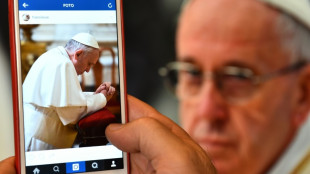
-
 Iraq's top Shiite cleric says Pope Francis sought peace
Iraq's top Shiite cleric says Pope Francis sought peace
-
Mourners flock to world's churches to grieve Pope Francis
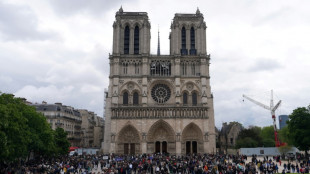
-
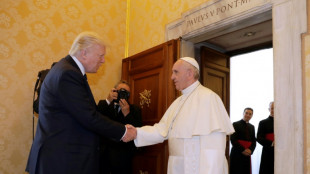 Trump says Pope Francis 'loved the world'
Trump says Pope Francis 'loved the world'
-
Sri Lanka recalls Pope Francis' compassion on Easter bombing anniversary

-
 Pope Francis inspired IOC president Bach to create refugee team
Pope Francis inspired IOC president Bach to create refugee team
-
Alexander-Arnold will be remembered for 'good things' at Liverpool: Van Dijk

-
 US VP Vance meets Indian PM Modi for tough talks on trade
US VP Vance meets Indian PM Modi for tough talks on trade
-
Pentagon chief dismisses reports he shared military info with wife

-
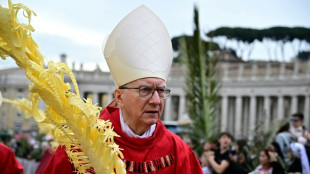 15 potential successors to Pope Francis
15 potential successors to Pope Francis
-
The papabili - 15 potential successors to Pope Francis
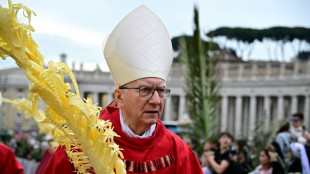
-
 Zhao sets up all-China clash after beating 2024 world snooker finalist Jones
Zhao sets up all-China clash after beating 2024 world snooker finalist Jones
-
Ostapenko stuns Sabalenka to win Stuttgart title

-
 Argentina mourns loss of papal son
Argentina mourns loss of papal son
-
African leaders praise Pope Francis's 'legacy of compassion'

-
 Mehidy's five wickets help Bangladesh fight back in first Zimbabwe Test
Mehidy's five wickets help Bangladesh fight back in first Zimbabwe Test
-
'The voice of god': Filipinos wrestle with death of Pope Francis

-
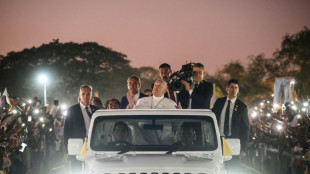 Prayers, disbelief in East Timor after Pope Francis death
Prayers, disbelief in East Timor after Pope Francis death
-
Real Madrid hold minute's silence as La Liga mourns Pope Francis
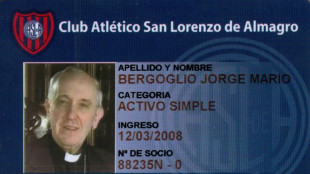
-
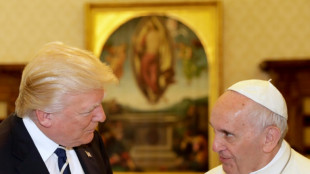 World leaders pay tribute to Pope Francis, dead at 88
World leaders pay tribute to Pope Francis, dead at 88
-
World leaders react to the death of Pope Francis
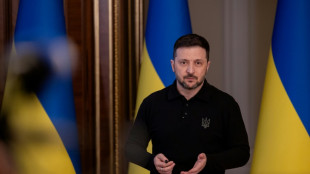

What is Signal and is it secure?
Signal is an end-to-end encrypted messaging app that is considered one of the most secure in the world by security professionals, but was never intended to be the go-to choice for White House officials planning a military operation.
What differentiates it from other messaging apps, and why has its use by top Trump officials plotting strikes on Yemen raised concerns?
- What is end-to-end encryption? -
End-to-end encryption means that any sent message travels in a scrambled form and can only be deciphered by the end user.
Nobody in between -- not the company providing the service, not your internet provider, nor hackers intercepting the message -- can read the content because they don't have the keys to unlock it.
Signal is not the only messaging service to provide this service, but unlike WhatsApp and Apple's iMessage, the app is controlled by an independent non-profit -- not a big tech behemoth motivated by revenue -- winning it more trust to those concerned about privacy.
Signal crucially goes further than WhatsApp on data privacy by making metadata such as when the message was delivered and who it was sent to invisible even to the company itself.
WhatsApp, meanwhile, shares information with its parent company Meta and third parties, including your phone number, mobile device information, and IP addresses.
For these reasons, Signal has always been a go-to messaging service for users especially concerned about communications secrecy, notably people working in security professions, journalists, and their sources.
- Who owns Signal? -
Founded in 2012, Signal is owned by the Mountain View, California-based Signal Foundation.
Its history is linked to WhatsApp: the site was founded by cryptographer and entrepreneur Moxie Marlinspike, with an initial $50 million from WhatsApp co-founder Brian Acton.
Both Signal and WhatsApp, which was bought by Mark Zuckerberg in 2014, are based on the same protocol built by Marlinspike.
"We're not tied to any major tech companies, and we can never be acquired by one either," Signal's website reads. Development is mainly supported by grants and donations.
Very outspoken compared to other Silicon Valley bosses, Signal's CEO is Meredith Whittaker, who spent years working for Google before helping to organize a staff walkout in 2018 over working conditions.
Whittaker campaigns for privacy and is a fierce critic of business models built on the extraction of personal data.
- How secure is Signal? -
"Signal is a very solid platform because of the way that it goes about doing its business, the way that it frequently updates the app, the way that it uses end-to-end encryption," said Michael Daniel, former White House cybersecurity coordinator under Barack Obama and current head of the Cyber Threat Alliance.
But "it was never built or intended to be used for discussing military plans," Daniel told AFP.
The real vulnerability, Daniel said, is not so much the app itself, "but everything that goes on around it. It's more that these are on personal devices that may or may not be stored in a secure manner or protected in the right way."
He noted that given their responsibilities, the high-level officials involved in the Huthi conversation would have communications teams with them at all times capable of handling the conversation using the appropriate methods.
Under normal circumstances, "It wouldn't have been that difficult to jump off their phones and do this in the proper protocols," he said, adding that having an outsider on the call would have been impossible if the right technology was used.
Matthew Green, who teaches cryptography at Johns Hopkins University and has collaborated with the development of Signal, said on Bluesky that by asking it to step up to "military grade" communications, Signal was "being asked to do a lot!"
He warned that Signal, which shot up on the list of most downloaded apps after the revelation, could become a victim of its own success.
"As the only encrypted messenger people seem to 'really' trust, Signal is going to end up being a target for too many people," he said.
L.Stucki--VB
